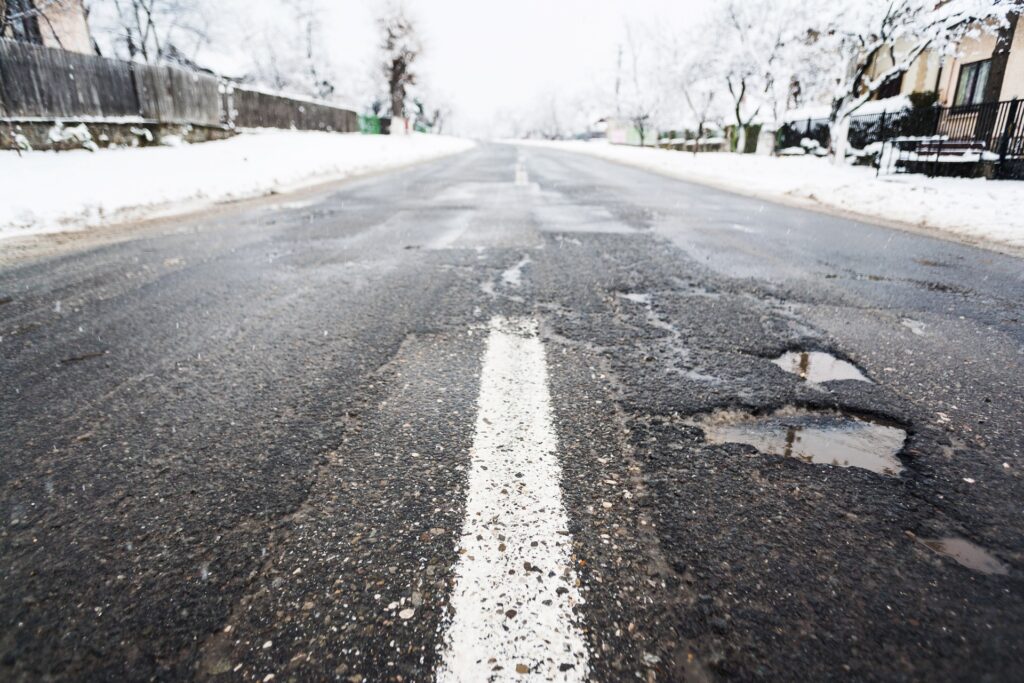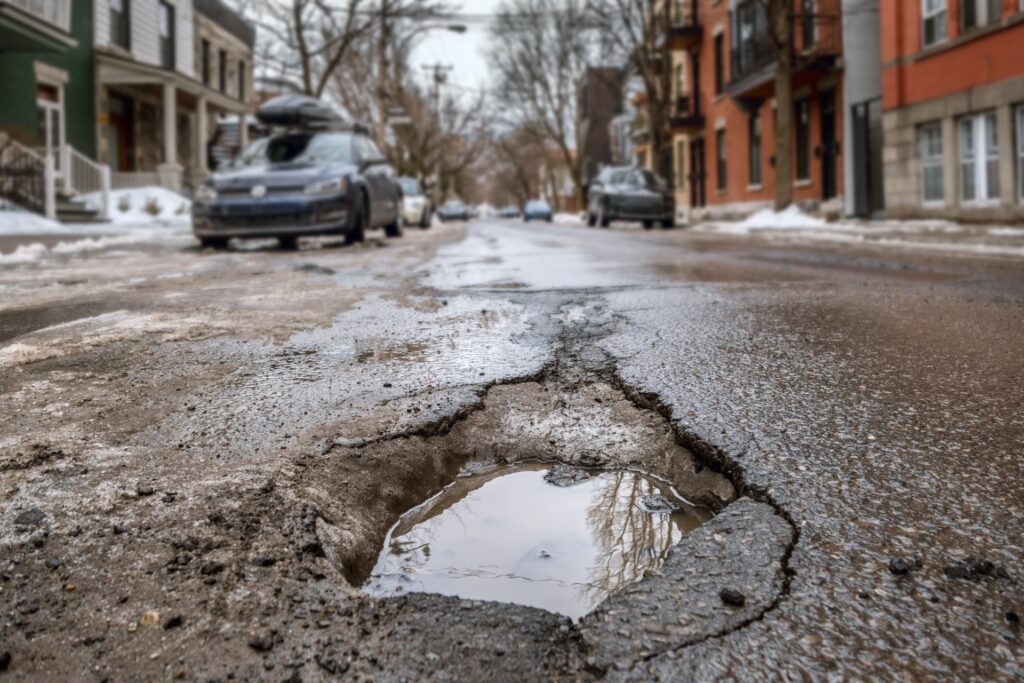No road stays smooth asphalt forever, in fact, some roads can cause serious damage to your car if they’re not maintained properly. You’ve probably encountered this yourself more than a few times in the form of potholes. However, you might not be aware of just how much pothole damage can be done to your vehicle.
Pothole Tire Damage: What Holes in the Road Can Do to Your Tires
Tires are the only point of contact your car has with the road so naturally, they’re going to wear down over time, but potholes can do much more significant damage than that. If the pothole is deep enough, upon impact, it can break the tire’s interior structure, tear the sidewall, or both.
If your tires are overinflated, you also run an even greater risk of them getting damaged if you hit a pothole.
The Damage Potholes Can Cause to Your Wheels
Potholes can damage more than just tires though. The force of the impact can cause hubcaps to break or fly off. The wheels of your car can bend or crack as well. The latter can be especially expensive as wheels can range between $100-$500 or more for a single wheel.
Unlike tires, there are minimal repair options, so you’re often faced with complete replacement if the pothole you hit causes severe enough damage.
How Potholes Can Damage Your Suspension
When a tire falls into a pothole it’s subjected to both horizontal and vertical force, especially as it leaves. This is particularly damaging to suspension as it’s only designed to go up and down. The horizontal force from a pothole can damage:
- The suspension arm
- The steering linkage (or tie rod)
Bear in mind that a replacement linkage can cost between $75 and $250, depending on the make of your vehicle, while a new suspension arm can be as pricey as $150 to $350 or more.
What to Do to Avoid Potholes
All this being said, this is all potential damage that can be caused by potholes. This is why it’s so important to be watchful as you’re driving so you can switch to another lane and avoid potholes in time.
However, even if you’re not able to avoid potholes in time, you can still reduce the damage from them significantly by slowing down in time before you hit the pothole. Low speeds are the best way to go over a pothole if you have no other option. It’s when you hit potholes at high speed that severe damage can be caused to your vehicle.
Potholes can definitely be responsible for expensive repairs to your vehicle, but by staying vigilant, you can spot them and respond appropriately to avoid or significantly mitigate any damage.


